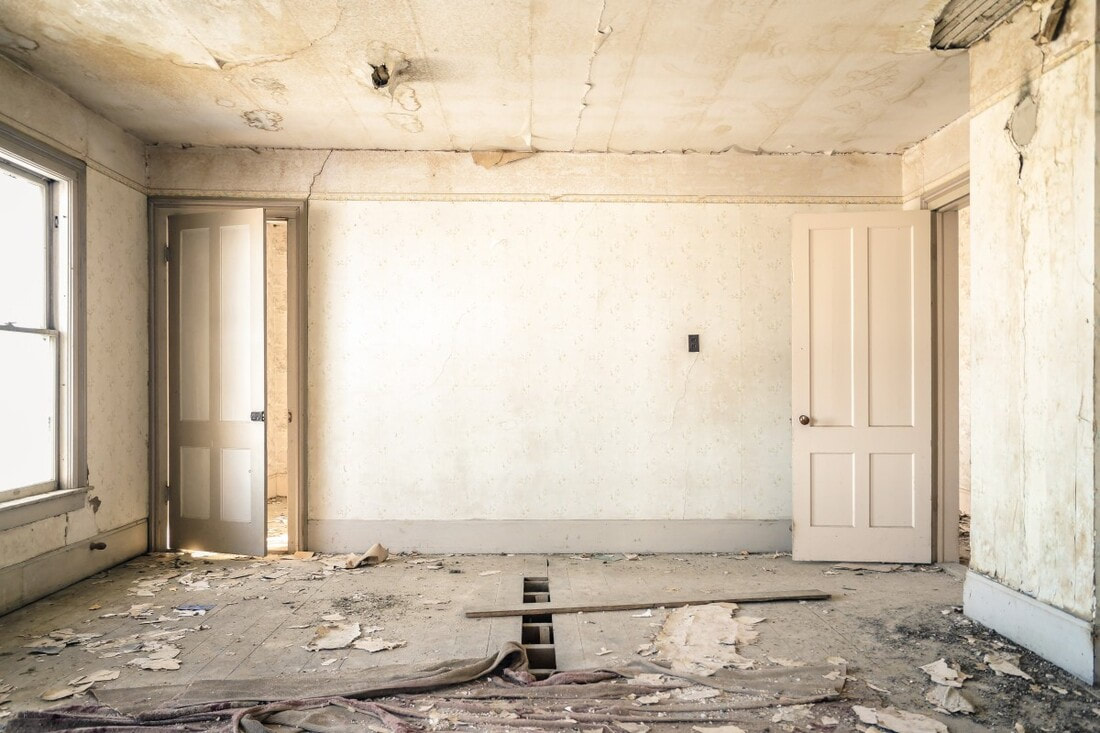|
If you are fortunate enough to find yourself in a position where you think you can afford to own property, you then have to deal with making the biggest and most complicated purchase of your life. For some, adding to the complication of a major renovation seems like madness. But for others, fixer-upper homes are the most achievable way to get the house of their dreams. If you have been considering joining the fixer-upper club, here’s what you’ll need to think about.
The Buying Process The first thing you need to do is determine your budget. In the case of a fixer-upper, this has to include both the price of the house and the renovation costs, but it is easier for you to think of them together for the time being. Good indicators to establish a budget include your annual income, money saved for a down payment, monthly spending, loan type, and current average APR. Don’t forget that there are plenty of hidden ongoing costs to owning a home, so you also need to take things like insurance, taxes, and maintenance into account. The next step for most homeowners is to get to know their local market and see what kind of home they can buy in the area with said budget. Nolo.com suggests that the best way to know how much to offer on a fixer-upper is to figure out the value of the home if it was fixed, calculating the cost of the work, and then subtracting one from the other. Once you find the fixer-upper of your dreams (and budget), there are a few additional steps you need to cover before making an offer. Get a full home inspection, which will highlight any repair work you may have missed during your visit, and re-adjust your offer accordingly. If a house you love has severe structural issues that would cost a fortune to repair, it may not be worth it. As you look into financing your purchase, research the types of loans that will work best for your situation. For example, if you’re a veteran with so-so credit and not a lot socked away, you are eligible for a VA loan, which can help when it comes to finding decent interest rates, plus there won’t be any mortgage insurance. On the other hand, if the home needs serious work, you can look into an FHA 203(k) loan. These loans provide funding for the home and the necessary renovations, in addition for funding that covers the time you can’t live in the home. The Renovation When it comes to renovating your new home, planning is the most important thing you can do. It may be tempting to throw yourself headfirst into the first DIY project you can think of, but this is not the most efficient way to proceed. Make a full list of everything that needs to be done, and sort tasks by priority. At the top, place anything that is necessary to make the house livable, such as electrical work, plumbing, or structural issues. Then address changes needed to make the house attractive. Finally, finishing decorative touches go last. A full renovation schedule is important, but it is by no means the only thing you need to consider. Real Homes has a detailed checklist of things you need to do before you start renovating, covering everything from securing the building site to learning about your home’s architectural features. And if you haven’t already, invest some cash into some quality power tools such as drills or saws to make those DIY projects a little easier. The Resale There is an accepted idea in society that your first house is a “starter home” and that you will eventually trade up to a bigger and better one. National statistics say the average first-time buyer stays in that house for 11 years before moving on to another home. However, there is also evidence that many first-time buyers, particularly young millennials, are skipping the starter home altogether. Instead, they are choosing to wait longer and put in more effort to buy a home that is right for them for the long haul. Whether you choose to re-sell your fixer-upper will ultimately depend on two factors: firstly, whether you bought the house with the long-term in mind, and secondly, how much value you have added through your renovations. Do bear in mind, however, that experts recommend living in a home for a minimum of five years before selling. Buying a fixer-upper for your first home doesn’t have to be a terrifying and intimidating prospect. As long as you are reasonable with your budget and expectations and do your homework, your fixer-upper can either end up being your dream home or a great first step on your way up the property ladder. |
Clark Real Estate
305 W. Moana Ste C Reno, NV 89509 (775) 828-3355 Reno Property Management
All
|



 RSS Feed
RSS Feed

